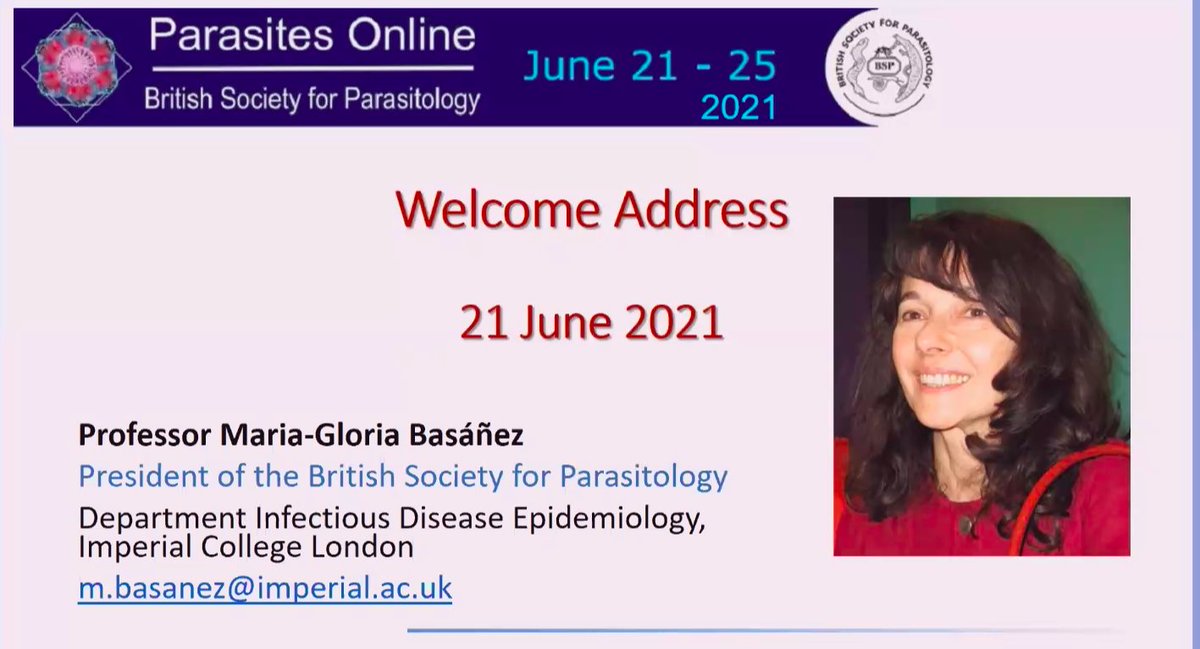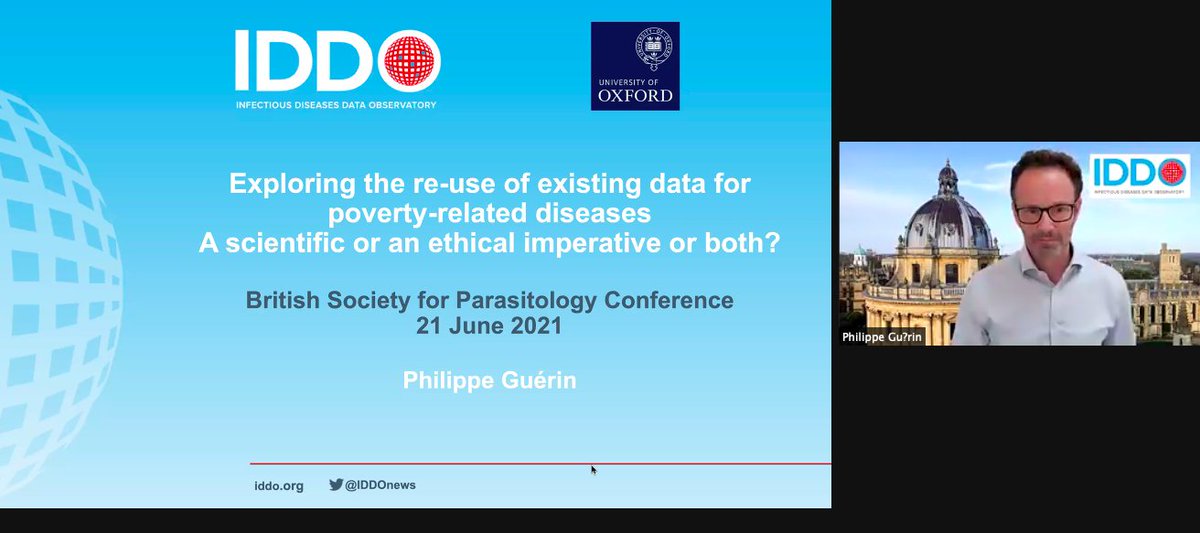
And now at #ParasitesOnline21 Day 2, we have our 2nd session on Gender and Racial Equality in Science, with @rejoicePhD telling us about "Centering Diverse Voices and Grappling with Racial Inequities in #Parasitology." 
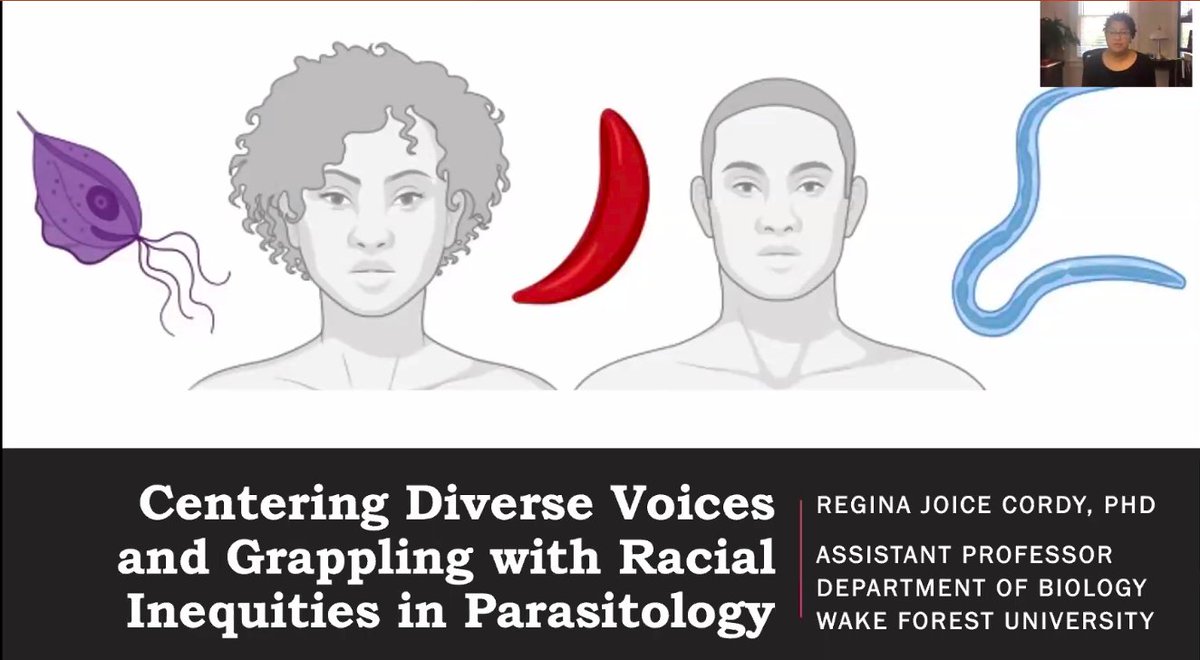
Not only has #COVID19 disproportionately effected minority communities in the US, but #parasites have too. Here is just one article describing the problem of #hookworm in the US South: theguardian.com/us-news/2017/s… #ParasitesOnline21
I think everyone needs to hear @rejoicePhD's talk on creating a scientific community where racial equity exists. So many amazing quotes and ideas. We can learn from the microbes we culture- a culture will not grow and thrive without the correct environment in which to do so. 
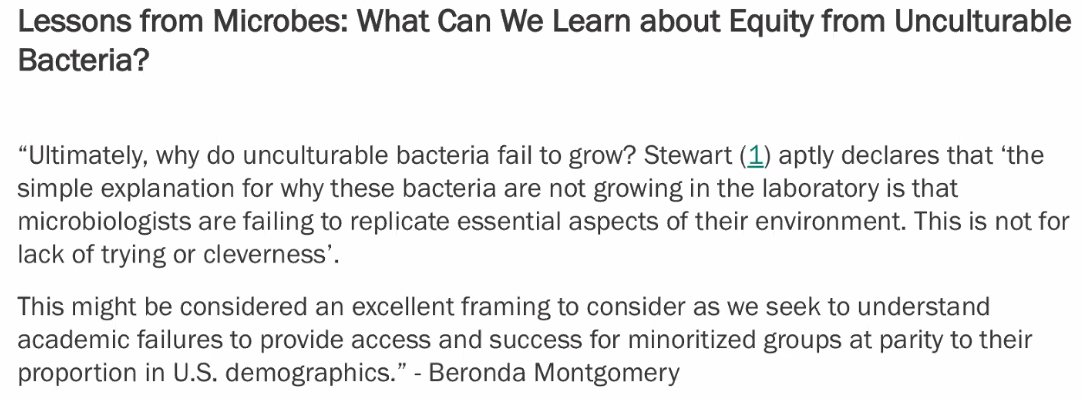
Another great point (among SO many) from @rejoicePhD at #ParasitesOnline21: it is very difficult for a minority scientist to work in a building day-in day-out that is named after a historical figure with a racist past. RENAME such buildings! #scicomm #parasitology
Takeaways from @rejoicePhD's talk:
- Read about these issues
- RESPECT everyone (not just people who look like what you think a Professor should look like!)
- Be humble
#ParasitesOnline21
- Read about these issues
- RESPECT everyone (not just people who look like what you think a Professor should look like!)
- Be humble
#ParasitesOnline21

Now for our 2nd talk of #ParasitesOnline21's 2nd "Gender and Racial Equality in Science" session: Dr Santuza Maria Teixeira of the Federal University of Minas Gerais in Brazil with "Women in Science: The path I followed and why we still need to discuss gender equality in Brazil." 

Big reminder at the end of Prof Teixeira's talk: the Annual Meeting of the Brazilian Society of Protozoology is coming up and it is online this year! #ParasitesOnline21 #Parasitology @BSPparasitology 

Wonderful Round Table on Gender & Racial Equality at #ParasitesOnline21 with @jameslac1, @EliseTweetsBio, @rejoicePhD, Pegine Walrad, Debbie Smith, & Derrick Robinson! Lots of interest in mentorship such as we did with @womeninmalaria & interest in @acmcip's Fireside Chats too!
Basically, the pandemic has made us more virtual so we can reach more LMICs and those who usually can't attend meetings! And there are free #Parasitology talks out there such as the @acmcip Fireside Chats & the @BParasitology talks & @striepenlab's departmental talks! All online!
There are also free #Parasitology talks from @ISNTD_Press every now and then, and I've seen @ifakarahealth talks. I should make a list, I know! But there are talks available worldwide at no cost for #Parasitologists. @BSPparasitology
Okay- so now we have our first talk of the #ParasitesOnline21 "Diagnosis and Biomarkers" Session I, with Prof John Gilleard of the University of Calgary telling us about "Metabarcoding and amplicon sequencing in #helminth diagnostics and surveillance." #Parasitology 

There's a great example of this kind of work from the Gilleard Lab, monitoring ivermectin resistance in beef cattle: sciencedirect.com/science/articl…! and a more recent rDNA nemabiome study also at pubmed.ncbi.nlm.nih.gov/33027723/
In a slightly different vein, this paper from the Gilleard Lab describes using the deep amplicon sequencing method, not just to monitor the nemabiome, but to identify SNPs that may correlate with antihelminthic drug resistance: sciencedirect.com/science/articl… #ParasitesOnline21
Very interesting- using the deep amplicon seq approach to study hookworms in canines. Again, the threat of drug resistance here, with a need for monitoring these parasites: parasitesandvectors.biomedcentral.com/articles/10.11…
Our 2nd talk of the #ParasitesOnline21 "Diagnosis and Biomarkers I" session is from Dr Laura Willen of the University of Antwerp, who tells us about "A novel immunoassay to measure human blackfly exposure in #onchocerciasis endemic areas.#ParasitesOnline21 

Omg this is EPIC!! You can find protocols for dissecting #blackfly salivary glands on @the_gnatwork (Best Name Award goes to...😃) at gnatwork.ac.uk/resources Beautiful layout of resources for #parasitology/#entomology! #ParasitesOnline21
I think we still have a short wait until we can read Laura Willen's full anti-blackfly immunoassay results but I've just seen that the #blackfly salivary gland proteome is online from Laura's study at groups.google.com/g/proteomexcha… #ParasitesOnline21
And now for our 3rd talk of #ParasitesOnline21 session "Diagnosis and Biomarkers I": Laudine Petralia of @LUMCPara with a talk about "Glycomic analysis of the filarial #nematode Brugia malayi and characterization of anti-glycan antibody responses during infection." #parasitology 
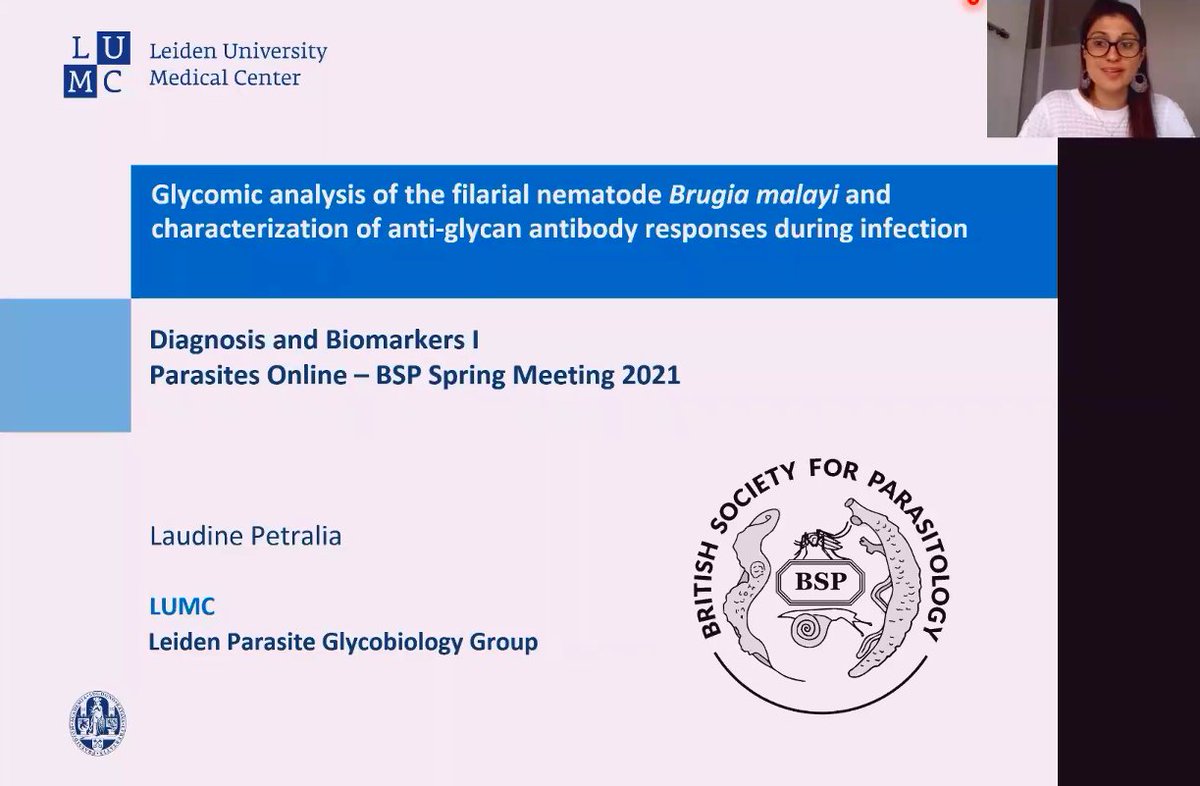
So we'll have to wait a little longer for Laudine's work on the anti-glycan antibody responses during Brugia malayi infection to come out, but until then, check out a similar longitudinal study from the lab of Jeremy Foster at @LUMCPara nature.com/articles/s4159… #ParasitesOnline21
And now for our final talk of the #ParasitesOnline21 "Diagnosis and Biomarkers I" session, Caoimhe Herron at Queen's University Belfast tells us about "Developmental and secretory regulation of microRNAs in an expanded #Fasciola hepatica dataset." #parasitology 

So just to add some references to this talk; here is a recent review from @FrontImmunol on the Fasciola hepatica miRnome: frontiersin.org/articles/10.33… & a recent paper featuring the McVeigh Lab on RNAi in Fasciola hepatica: sciencedirect.com/science/articl… #ParasitesOnline21
@threadreaderapp unroll
• • •
Missing some Tweet in this thread? You can try to
force a refresh


